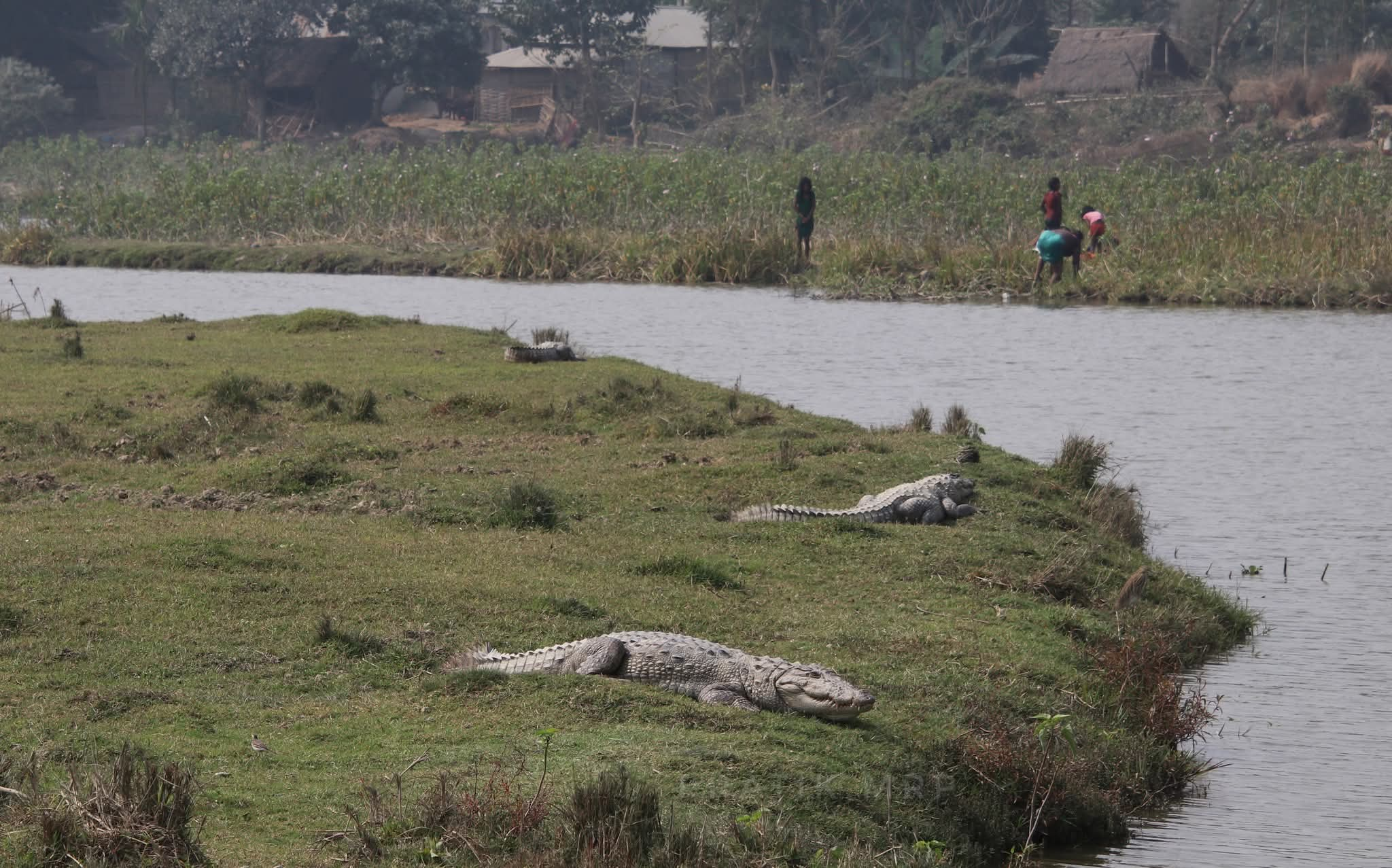Kathmandu, June 17, 2025 - As the world celebrates World Crocodile Day, Nepal’s conservation efforts for the critically endangered gharial (Gavialis gangeticus) take center stage. This fish-eating crocodile, one of two crocodilian species in Nepal, is not only vital for maintaining ecological balance but also an indicator of healthy river systems. However, its survival faces numerous challenges.
The Gharial Breeding Centre in Chitwan National Park has been a beacon of hope since its establishment in 1978. Over the years, it has hatched and released thousands of gharials into the wild. This year alone, 105 juveniles were reintroduced into the Rapti River. Despite these efforts, survival rates remain dismal due to natural and human-induced threats, including habitat loss, pollution, and climate change.
Pressing Threats to Survival
Illegal Fishing: Gharials often become unintended victims of fishing nets, leading to injuries or death.
Habitat Degradation: Pollution, sand mining, and human encroachment severely disrupt their breeding grounds.
Climate Impact: Rising temperatures are skewing gender ratios in hatchlings, exacerbating reproductive challenges.
Conservation Highlights
Nepal has adopted innovative measures to ensure gharial survival:
Strategic Translocations: Recently, 10 adult gharials were relocated to the West Rapti River in Banke National Park to diversify habitats and bolster populations.
Community Engagement: Conservation programs have intensified awareness efforts among local communities to reduce human-wildlife conflict and promote sustainable practices.
Scientific Advancements: Improved incubation techniques aim to mitigate the effects of temperature changes on gender ratios, enhancing reproductive success.
A Call for Collective Action
Experts stress the importance of cleaner rivers, stricter enforcement against illegal fishing, and expanded conservation zones. Cross-border collaborations with India and Bangladesh are also crucial to protecting the gharial’s migratory habitats.
"Saving the gharial isn’t just about preserving a species. It’s about ensuring the health of our river ecosystems, which support countless communities and biodiversity,” said Ram Prit Yadav, a founding member of the Chitwan Gharial Project.
On World Crocodile Day, Nepal’s conservation community urges everyone to recognize the gharial’s ecological significance and join the movement to secure its future. Together, we can ensure that these incredible creatures continue to thrive in Nepal’s rivers for generations to come.